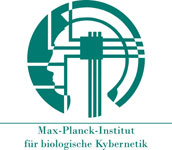
The Approval Process for Studies Using Animals
The application is then reviewed by the experts in an advisory commission. They give the permit-issuing authorities arguments for or against approval. The commission also includes representatives of animal protection organizations. Their task is to keep an eye on animal welfare issues. But it is also the responsibility of all of the members of the commission to weigh the ethical aspects of the benefit of the experiment against possible or unavoidable injury or suffering for the animal. Thus, the commission decides whether the proposed experiments are justifiable in view of the expected insights. It is not their task to decide whether and which scientific problem shall or may be pursued. The ultimate decision about each application is made by the authorities (Regierungspräsidium).
The fundamental decision about whether animal experiments may be carried out to gain scientific insights was made by the lawmakers. The corresponding research organizations such as the German research foundation DFG, the Max Planck Society MPS or the German Federal Ministry of Education and Research BMBF decide which scientific questions may be pursued. The do this by appointing scientists or approving grants to finance research projects. Most research organizations are public institutions or nonprofit foundations. They are subject to strict supervision of their approval processes. Their decisions must be made on the basis of expert opinions that give a scientifically sound explanation for why a proposed research project is considered promising enough for funding or approval.